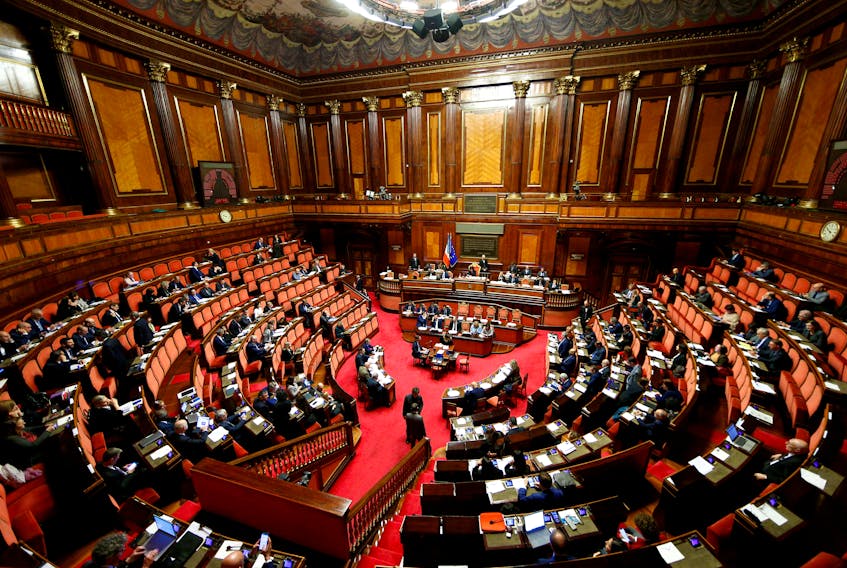BRUSSELS (Reuters) - The European Commission has asked Italy to adopt new measures to cut its growing public debt and avoid an EU disciplinary action that could lead to financial sanctions and stricter oversight of the country's fiscal policies.
Italy narrowly averted such a sanction procedure late last year, when it reached an agreement with the Commission, the European Union's executive, over its 2019 budget. The Commission had initially rejected the budget, saying it would not cut Italy's large debt.
Official data released in April showed Italy's debt grew to 132.2% of gross domestic product in 2018, the largest ratio in the EU after bailed-out Greece. It is set to expand further this year and next, according to Commission forecasts, in spite of EU rules that say the debt should fall.
Italy's euroskeptic government has so far shown little inclination to reduce its debt. Deputy Prime Minister Matteo Salvini has instead urged a relaxation of EU fiscal rules and wants broad tax cuts -- without explaining how they would be funded.
The possible next steps are:
June 20-21: EU leaders meet in Brussels for a quarterly summit. The meeting offers Italian Prime Minister Giuseppe Conte a chance to discuss ways of avoiding the debt procedure with the outgoing Commission President Jean-Claude Juncker.
June 25 or July 2: The European Commission could recommend the opening of a disciplinary procedure against Italy if Rome makes no concessions. This decision could be taken at one of the next two weekly meetings of the EU executive scheduled on June 25 and July 2.
July 1-8: EU governments' officials meet and could decide to endorse the Commission's proposal to start a disciplinary action over Italy's debt.
July 8-9: EU finance ministers gather in Brussels for a regular monthly meeting, where they are expected to decide on the possible formal opening of disciplinary proceedings against Italy, if recommended by the Commission.
Once the procedure is started, Italy will be required to adopt measures, such as higher taxes and spending cuts, to correct its deviation from fiscal targets within three or six months from the beginning of the procedure.
July 29: If EU finance ministers open a disciplinary procedure, July 29 would be the deadline for the Commission to propose what would be unprecedented financial sanctions against Rome. If deemed in "serious" breach of EU rules, the Italian government could be required to lodge with the Commission a non-interest bearing deposit worth 0.2% of GDP -- around 3.5 billion euros ($3.9 billion).
Aug. 7: Euro zone governments would have 10 days, until Aug. 7, to block by qualified majority a Commission proposal to impose sanctions.
Sept. 20: Italy presents updated growth and public finance targets, which will be the framework of its 2020 budget.
Mid-October: First possible deadline for Italy to meet, in its 2020 draft budget, the fiscal requirements imposed by the EU in the disciplinary procedure.
Failure to act could trigger further sanctions, including a fine of up to 0.2% of GDP, the suspension of billions of euros in EU funds and closer fiscal monitoring by the European Commission and the European Central Bank.
Further failure to cooperate could incur even stricter penalties. Those might include a fine of up to 0.5% of GDP, the potential loss of multi-billion-euro loans from the European Investment Bank, and precautionary monitoring by the EU of Italy's plans to issue new debt.
Nov. 1: The new Commission is expected to take office, unless the mandate of the existing executive is extended.
(Reporting by Francesco Guarascio @fraguarascio in Brussels; additional reporting by Giuseppe Fonte and Gavin Jones in Rome; Editing by Catherine Evans and Jon Boyle)









